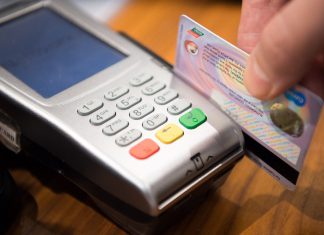As digital payments continue to take the world by storm, Flagright has outlined the five essential steps FinTechs and neobanks can take to secure their digital payments.
These steps include implementing strong access controls, encrypting sensitive payment data, using fraud detection tools, monitoring payment activities and staying up-to-date on regulatory requirements.
By making use of these steps, Flagright is confident neobanks and FinTechs can better protect customers from fraud, data breaches and other security threats.
It stated that FinTechs and neobanks face unique payment security challenges due to the nature of their business. They need to balance security and user experience, as well as regulatory requirements. Failing this, they risk payment fraud and data breaches that bring heavy fines and reputational damage.
Digital payments are often targeted by fraudsters, exploiting vulnerabilities in payment systems. However, making highly complex security measures can lead to friction in the payment process, which could lead to a loss of customers.
Getting the right balance is tough, but here is Flagright’s advice.
First of all, it stated that firms need to implement strong access controls. This includes limiting the number of employees who have access to payment systems, using multi-factor authentication and enforcing password policies.
Next, firms should encrypt sensitive payment data to prevent unauthorised access. By leveraging encryption, firms can protect data even if it is intercepted by an illicit player.
As for the next tip, Flagright stated that firms should use fraud detection tools to detect and protect against fraud. These tools use advanced algorithms to analyse payment data in real-time and identify potentially fraudulent activity.
Another tip to secure digital payments is to monitor payment activity to detect suspicious transactions. It stated that this includes using custom rules and alerts to flag potential fraud or money laundering activities.
Finally, Flagright urged companies to keep up with regulatory requirements related to payment security. Firms should be aware of the requirements of regulations such as Payment Card Industry Data Security Standard (PCI DSS) and Anti-Money Laundering (AML) regulations.
It said, “By taking these 5 essential steps, FintTchs and neobanks can significantly improve their payment security and reduce the risk of payment fraud and data breaches. Implementing these steps can also help businesses comply with regulatory requirements and maintain customer trust.”
Flagright added that its AML compliance and fraud protection platform provides FinTechs and neobanks with a centralised solution to overcome digital payment security challenges. Its solution offers real-time monitoring and analysis tools that help businesses detect and prevent payment fraud and other security threats.
One of its features is transaction monitoring, which it claims is critical in detecting suspicious payment activity in real-time. Its algorithm analyses payment data and identifies potential fraud or money laundering activities and can be set up for customer rules and alerts to uncover specific types of payment fraud.
Read the full story here.
Copyright © 2023 FinTech Global











